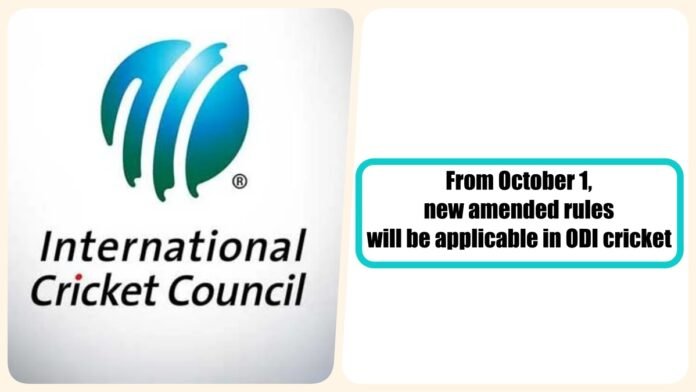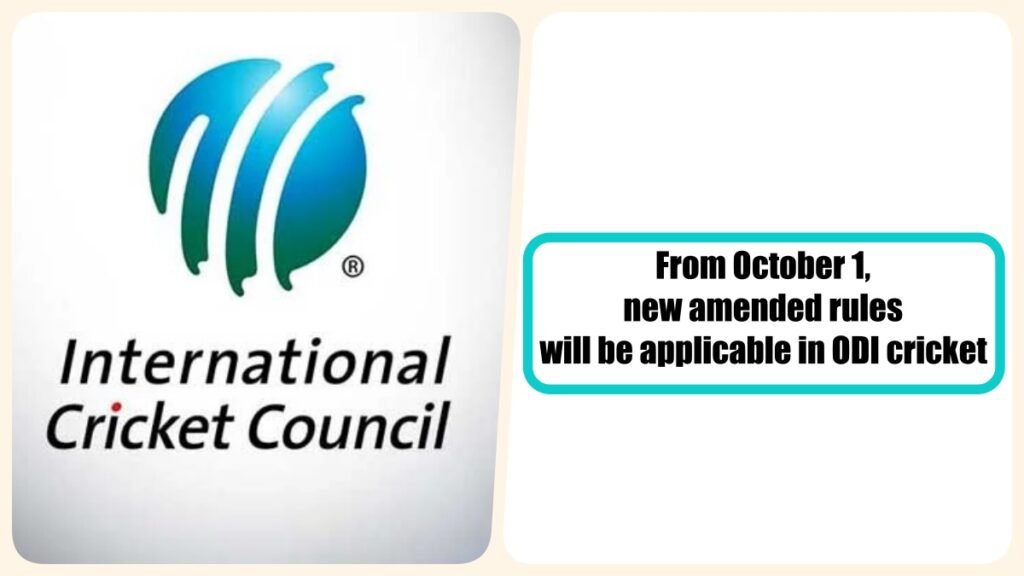
The International Cricket Council (ICC) has announced to implementation of amendments to the old rules of cricket. In view of the threat of corona infection, the temporary ban on the use of saliva to shine the ball has been completely banned. Now stop using saliva forever. The new rules will come into effect from October 1, 2022.
New amended rules
Catch-out rules
When a batter is caught out, the new batter will start at the striker’s end. Changing the crease or not changing the crease of the dismissed batsman will no longer make any sense. Till now it used to happen that if the batsman making noise changes the strike before being caught out, the new batsman came on nonstrike.
Time for the new batsman to take strike
When a new batsman comes on strike after the dismissal of a batsman, he has to come on strike within 2 minutes in International Test matches and One Day International matches. Whereas, in T20 International this time will be of 90 seconds.
Such a change has been made in this rule after much discussion. According to the earlier rule, the new batsman had to come on strike within 3 minutes. Now according to the new rule, if the batsman does not come within the stipulated time limit, then the captain of the fielding team can appeal for tom out.
Striker batsman’s right to play the ball
The bat or the batsman must be inside the pitch when the batsman is playing the ball. If the batsman is forced to come out of the pitch, the umpire will call at such time to declare that ball a dead ball. If a ball from the bowler’s side forces the batsman to come off the pitch, then the umpire can call it a No Ball.
On misbehavior by the fielding team
If a bowler behaves inappropriately during his bowling, that is, during the run-up, or does some intentional wrongdoing, then in such cases the umpire of the match can take action. 5 runs can be added to the batting team’s account as a penalty. Apart from this, the umpire can also call such a ball a dead ball.

Non-striker’s run out
If a non-striker batsman walks out of the crease before the bowling bowler bowls the ball, and if he runs out the batsman at that non-striker’s end, it is now considered run out.
Before the striker throws the ball toward the batsman
If a bowler takes a run-up for bowling, and before coming into the delivery stride, observes that the batsman facing the ball has advanced beyond the crease and if that bowler strikes with the intention of dismissing the batsman. throws the ball towards the facing batsman, it is considered a dead ball.
In-Match Penalty
The ‘In-match Penalty System’ implemented in T20I in January of this year will now be implemented in ODI also after the end of ICC ODI World Cup Super League to be held in 2023.
Significantly, when a fielding team does not finish the over by bowling at the stipulated time, then in the death overs of the match, that team is punished for reducing one fielder on the boundary. And, that fielder is brought to the crowd of the circle. This is called the In-Match Penalty Rule.





















































